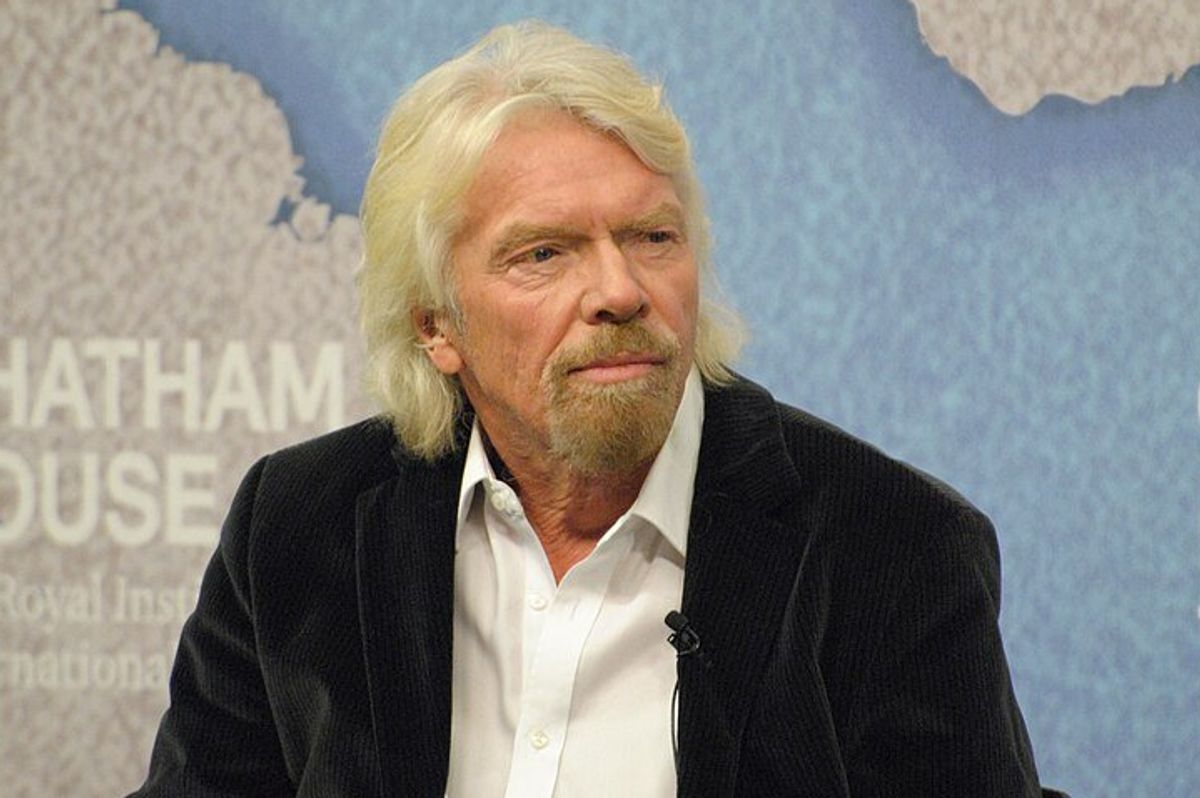Billionaire Richard Branson's simple habit that opens the door for incredible innovation
He "can’t understand" why everyone doesn't do it.
Entrepreneur Richard Branson.
To paraphrase a popular adage about a tree falling in the woods: If you have a meeting and nobody takes notes of what was said, did the meeting ever really occur in the first place?
That’s the core question at the center of one of billionaire entrepreneur, Virgin Group founder, adventurer and philanthropist Richard Branson’s most important habits. He takes pen-and-paper notes during every meeting.
"I love learning," Branson explained on the “Worklife” podcast with Adam Grant. "I can never understand how people can have a meeting with somebody and not take notes. If you're having a meeting with a group of people where you're planning to sort out issues and not take notes, you're only going to remember two or three things from that meeting. And quite often from a meeting, you might have a list of 20 ideas that come out of it."
He’s got a great point. If people only leave the meeting remembering a handful of ideas, then some great suggestions that should be followed up on magically disappear. The good ideas that deserved reconsidering have been blown away into the ether, never to be considered again.
"It's important to follow up on and it's very important to get back to the person who came up with those ideas and either respond positively or say why you disagree. By dealing with all those small things quickly, you go from potentially becoming an average company into becoming an exceptional company, and the staff who work there are really appreciative that their issues have been dealt with," Branson concludes.
The entrepreneur blames the lack of note-taking squarely on men. He adds that leaving all the note-taking to women does a real disservice to men.
“In my experience, 99 percent of people in leadership roles don’t take notes. What’s more, males are less likely to take notes than their female counterparts,” Branson writes on LInkedIn. “Not only is this unfair to women, but it’s also disadvantageous to men. It’s time for men to step up and do their share of support work. On top of counteracting gender bias in the work force, it will also give men a better understanding of what going on within the business and what needs to be done to make things run more effectively.”
Running meetings without taking notes also makes it harder for meaningful work actually to get done. “This often happens with, for instance, politicians. We will have a meeting, talk about dozens of ideas to improve things, and they won’t write anything down. They might remember one of the ideas, but what about all of the others? They will have to muddle through and little will get done,” he wrote on Virgin’s blog.
Ultimately, it’s essential for people to take notes because great ideas can be lost forever without them. “No matter how big, small, simple or complex an idea is, get it in writing,” Branson wrote. “But don’t just take notes for the sake of taking notes, go through your ideas and turn them into actionable and measurable goals. If you don’t write your ideas down, they could leave your head before you even leave the room.”
- People are sharing the marriage advice that 'sounded absurd' but is actually really helpful ›
- An open letter to my ex-husband's future wife. ›
- Business consultant Cindy Gallop says she has the perfect advice for any woman negotiating her pay ›
- Fortnite owner praised for quietly saving 50,000 acres of wilderness from development - Upworthy ›



